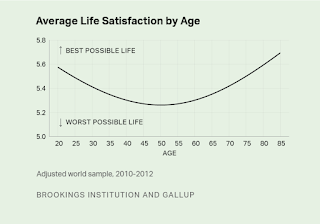Piotr Sorokowski, et al. (2023)
Ethics & Behavior,
DOI: 10.1080/10508422.2023.2248327
Abstract
Given the adage “older and wiser,” it seems justified to assume that older people may be stereotyped as more moral than younger people. We aimed to study whether assessments of a person’s morality differ depending on their age. We asked 661 individuals from seven societies (Australians, Britons, Burusho of Pakistan, Canadians, Dani of Papua, New Zealanders, and Poles) whether younger (~20-year-old), middle-aged (~40-year-old), or older (~60-year-old) people were more likely to behave morally and have a sense of right and wrong. We observed that older people were perceived as more moral than younger people. The effect was particularly salient when comparing 20-year-olds to either 40- or 60-year-olds and was culturally universal, as we found it in both WEIRD (i.e. Western, Educated, Industrialized, Rich, Democratic) and non-WEIRD societies.
Here is my summary:
The researchers found that older people were rated as more moral than younger people, and this effect was particularly strong when comparing 20-year-olds to either 40- or 60-year-olds. The effect was also consistent across cultures, suggesting that it is a universal phenomenon.
The researchers suggest that there are a few possible explanations for this finding. One possibility is that older people are simply seen as having more life experience and wisdom, which are both associated with morality. Another possibility is that older people are more likely to conform to social norms, which are often seen as being moral. Finally, it is also possible that people simply have a positive bias towards older people, which leads them to perceive them as being more moral.
Whatever the explanation, the finding that older people are perceived as more moral than younger people has a number of implications. For example, it suggests that older people may be more likely to be trusted and respected, and they may also be more likely to be seen as leaders. Additionally, the finding suggests that ageism may be a form of prejudice, as it involves making negative assumptions about people based on their age.

